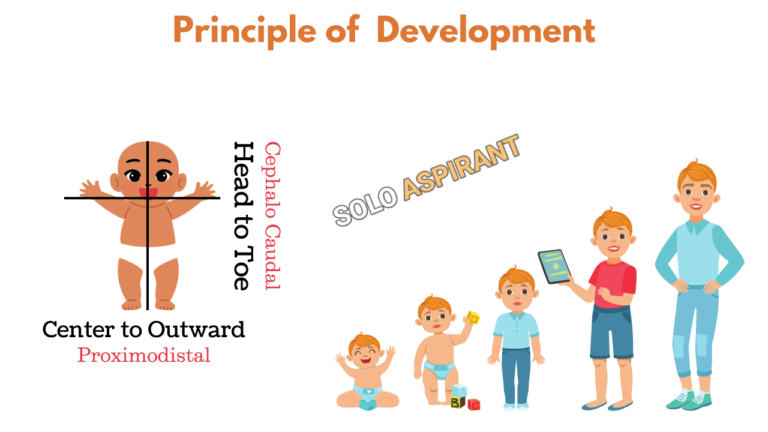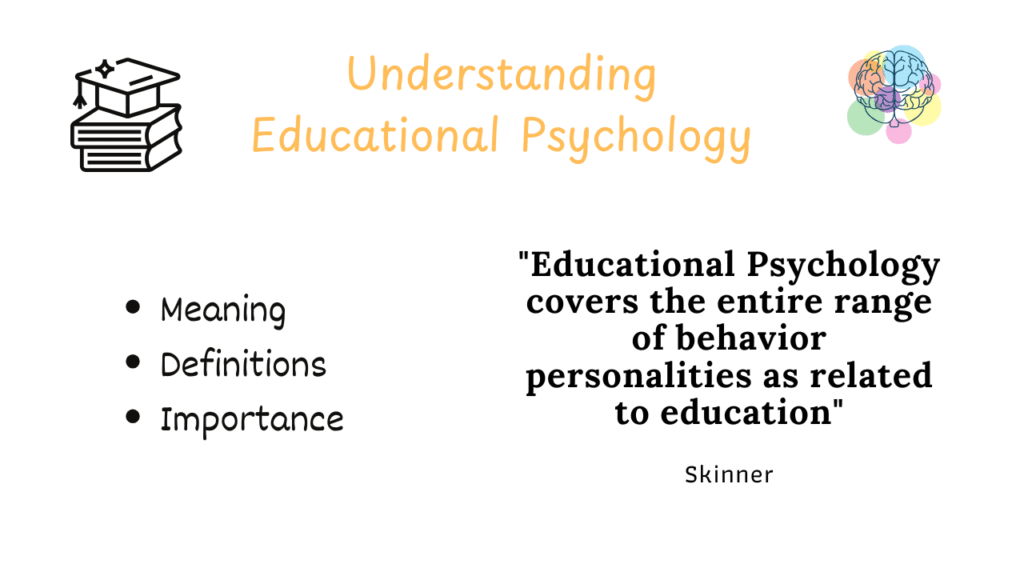In this post, we present short notes on the Principles of Development, explained simply and systematically for quick understanding and revision, beneficial for B.Ed students. Understanding how children grow and develop is an essential part of educational psychology.
As a part of the Growth and Development chapter in Childhood and Growing Up, these principles provide the foundation for learning how children acquire physical, cognitive, emotional, and social skills.
Principles of Development
The principles of development describe the fundamental characteristics and patterns of human growth and development. These principles apply to physical, cognitive, emotional, and social development at various stages of life.
Development is a systematic process that includes physical, social, emotional, and cognitive changes.
- Development is a lifelong process from the womb to the tomb.
- It is both quantitative and qualitative.
- It includes every aspect of life, human beings experience throughout their journey, from birth to death.
According to Hurlock
”Development is not confined to growth alone, but it is a systematic and “consistent” change involving a progressive sequence of changes towards the goal of adulthood, resulting in new features and abilities appearing.”
The principles of development describe the fundamental characteristics and patterns of human growth and development. These principles apply to physical, cognitive, emotional, and social development across different stages of life.
- Development is a Lifelong Process:
Development starts from birth and continues throughout life. - Development Proceeds from General to Specific:
A baby moves its whole body before learning to move specific parts (e.g., waving arms before grasping objects). - Development is a Continuous Process:
It is a gradual process, though the rate may vary at different stages. - Development is Sequential:
It follows a definite order (e.g., a child learns to sit before standing and walking). i.e, Cephalo-caudal and Proximo-distal Trends:
Cephalo-caudal:
Development proceeds from head to toe (e.g., infants first gain control over head movements before leg movements).
Proximo- distal:
Development moves from the center of the body outward (e.g., children control arm movements before finger movements). - The rate of development varies from person to person due to heredity, environment, and early childhood experiences.
- Development is the product of Maturation and Learning
Maturation – It is a natural or biological process in which children grow with age, such as Physical Growth, Puberty, etc.
Learning – The changes occur through education, experience, practice, and interaction with the environment.
A child’s early environment, nutrition, and learning experiences play an important role in their future development.
Since development is predictable but individualistic. While general patterns exist in all children, each individual develops at their own pace.
Difference between Growth and Development
Hi, I’m Amit Kumar — the author of SoloAspirant.
I am a part-time blogger and tutor with a background in Physics and a B.Ed. Through this platform, I share study materials, notes, and PYQ PDFs curated to help aspirants prepare effectively for teaching and competitive exams.


